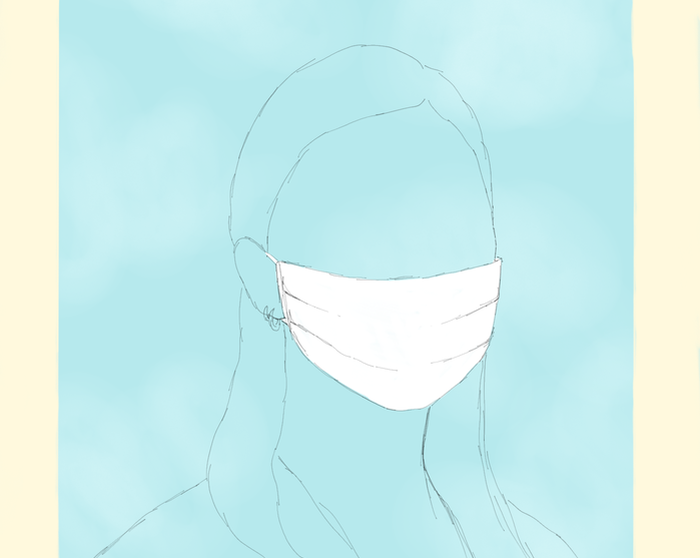An ableist room ballot: students forced to choose between their friends and their access needs
Lucy Cavendish College fails to provide adequate provisions for those with disabilities and access needs, argues Heather Bellamy

Summarised by a recent Camfess submission, “I’ve been more stressed out by the room ballot than by my actual degree”. The room ballot process has become an immense source of pressure and anxiety for students across Cambridge. However, for those living with disabilities, and as a result, requiring an accessible room, this struggle is only amplified.
The usual system at Lucy Cavendish College allows students to select up to three friends to live alongside in the upcoming year. However, disabled students are being stripped of the privileges granted to their able-bodied peers and presented with an impossible decision: to ballot in a block with chosen friends or to isolate themselves in order to obtain an accessible room. To be presented with such a ‘choice’, where no element of choice in fact exists, is not only insulting but blind to the daily struggles of managing a health condition. Students are being placed in an impossible position solely due to their access requirements.
“Students are being placed in an impossible position solely due to their access requirements”
From a legal perspective, the Equalities Act 2010 requires all institutions to take “reasonable” steps to alleviate disability-based disadvantages. In the context of these elite universities with access to almost £21 billion of wealth, it seems far from unreasonable to allow disabled students the same basic choice as their able-bodied peers. Even so, should the responsibilities of a university not exceed the bare minimum and seek to prioritise the welfare of its students?
While one would hope that the physical struggle of coping with a disability is today widely understood, unfortunately, the mental aspect is far too often neglected. With reports that adults with disabilities experience frequent mental distress almost 5 times as often as their able-bodied counterparts, the importance of feeling surrounded by those who understand your needs on a day dictated by pain and fatigue, cannot be overstated. As a student living with a chronic condition, I know first-hand that the mental health burden intrinsically attached to disability is far greater than any physical pain I have come to experience.
A student at Lucy Cavendish College has emotionally expressed the “complete lack of consideration for the mental health aspect of having a disability”, while another describes failed efforts to “ballot with disabled friends,” in an attempt to make the practical arrangements of reasonable adjustments even easier. While the Lucy Cavendish JCR has shown frustration and desires to improve the system, this cannot be achieved without the cooperation of senior members of staff. One would hope that Cambridge had evolved beyond the days of the uniform able-bodied, straight, white man. However, until marginalised groups are not only accepted but adequately accommodated, equality and inclusivity will remain a distant aspiration.
“This flawed ballot system highlights the vital need for disabled people to sit at the forefront of decision-making processes”
The perception of these requests as rooted in preference rather than genuine concern highlights the ignorance and enormous privilege borne by those in positions of authority. Unfortunately, the feeling of being marginalised and unheard is indicative of a university-wide problem. Far too often I hear from friends with physical and mental impairments, stories of feeling ignored and dismissed when requesting the basic adjustments that they are entitled to in order to meet academic requirements and participate in university life. This flawed ballot system, undoubtedly mirrored across Cambridge colleges, highlights the vital need for disabled people to sit at the forefront of decision-making processes. To employ the claims of Ruth Bader Ginsburg, that “women belong in all places where decisions are being made”, the same must apply to all marginalised identities.
Being made to feel like a burden in an institution far beyond equipped to accommodate your needs is a widespread issue faced by the disabled community. As a society, we must accept that equality will not be achieved until the voices of disabled individuals are not only heard but listened to. Hollow claims of inclusivity without the adequate systems in place to achieve it amounts to tokenistic “non performatives” which release institutions of their obligation to create substantive change. Systemic change is needed, and a reformed room ballot system forms only a fraction of it.
Lucy Cavendish College was contacted for comment.
They responded: “If a student requires a specific type of room, they can receive additional support and be exempt from the Ballot process. This means that the student would get to choose a room before anyone included in the Ballot. Our accommodations team would then support the student and help them find the appropriate accommodation. We have several fully accessible rooms across multiple buildings – with some that also have an adjoining room that can be used for a live-in carer. We are also significantly expanding our facilities with our new building, where all rooms will have, for instance, a turning circle for wheelchairs. The new building should be completed this year.”
 News / Cambridge study finds students learn better with notes than AI13 December 2025
News / Cambridge study finds students learn better with notes than AI13 December 2025 Features / Should I stay or should I go? Cambridge students and alumni reflect on how their memories stay with them15 December 2025
Features / Should I stay or should I go? Cambridge students and alumni reflect on how their memories stay with them15 December 2025 News / Uni Scout and Guide Club affirms trans inclusion 12 December 2025
News / Uni Scout and Guide Club affirms trans inclusion 12 December 2025 Comment / The magic of an eight-week term15 December 2025
Comment / The magic of an eight-week term15 December 2025 News / Cambridge Vet School gets lifeline year to stay accredited28 November 2025
News / Cambridge Vet School gets lifeline year to stay accredited28 November 2025









